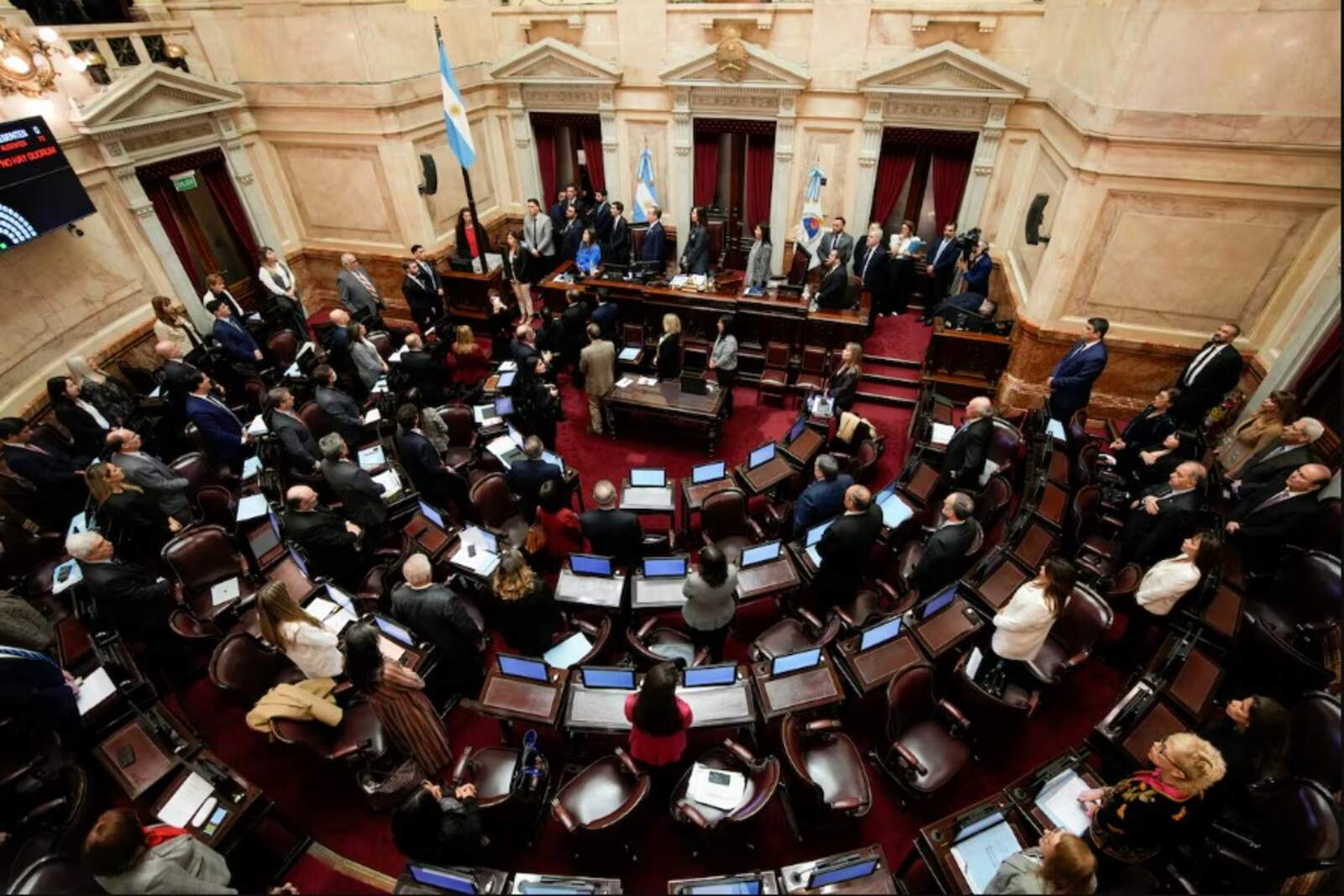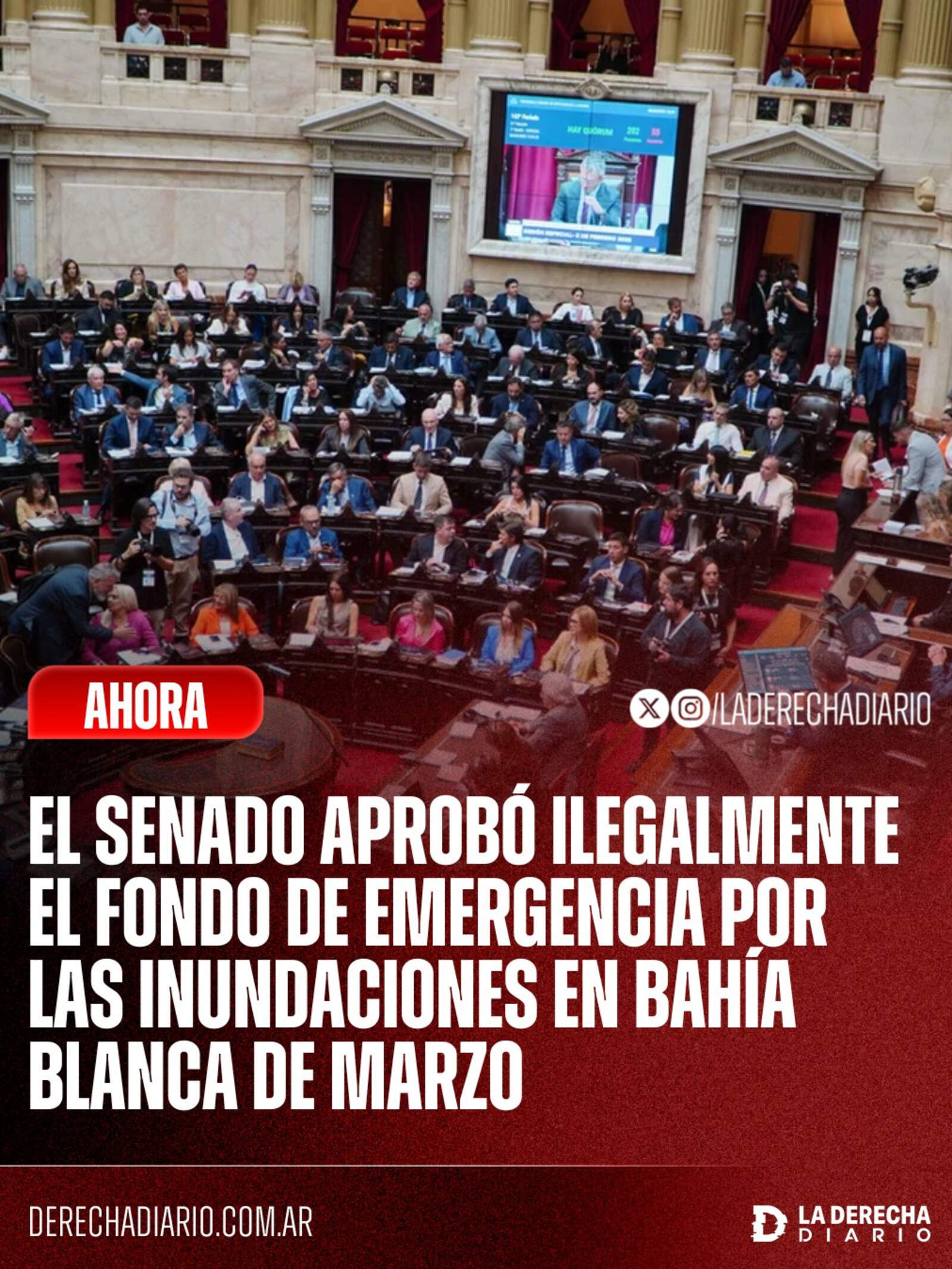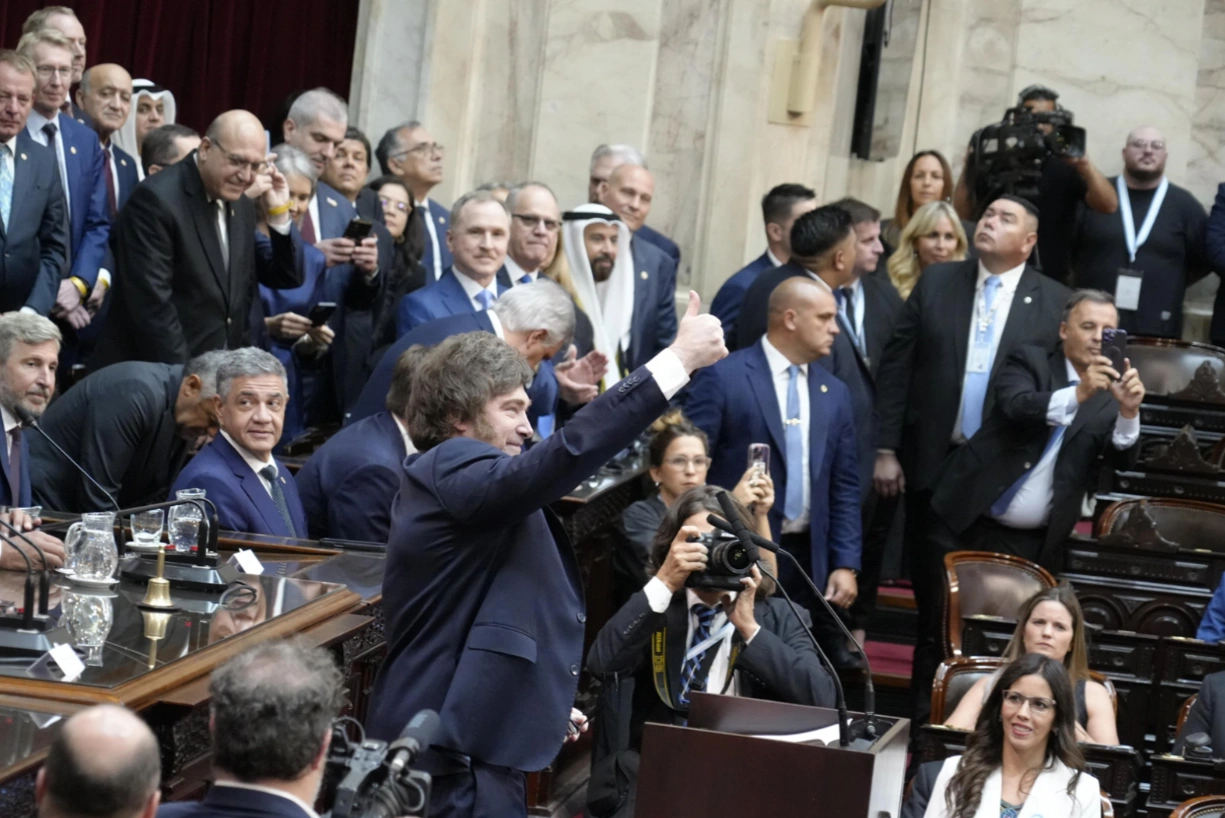President Javier Milei announced that he will veto the bill approved by the Senate that increases pensions and retirement benefits, and made it clear that he won't yield to any measure that would break fiscal balance. The decision, communicated from the Stock Exchange, aims to send a strong signal to financial markets and investors, reaffirming that the fiscal surplus is non-negotiable.
"This is an act of desperation because they know that in October freedom will sweep through," Milei said in a defiant tone, alluding to his interpretation that the legislative advance is an electoral maneuver and not a genuine attempt to improve retirees' incomes.
The fiscal cost of the pension law worries the administration
The approved bill contemplates a real increase of 7.2% in all pensions and retirement benefits, in addition to raising the pension bonus from $70,000 to $110,000 with adjustments for inflation. It also reinstates the pension moratorium for two years, which would allow those who don't have 30 years of contributions to access a pension.

The Government warns that this would mean breaking the primary fiscal surplus achieved in the first months of the year. According to estimates from the consulting firm Empiria, this package alone implies a cost of 0.9% of GDP in 2025 and 1.3% in 2026, not counting other complementary measures.









